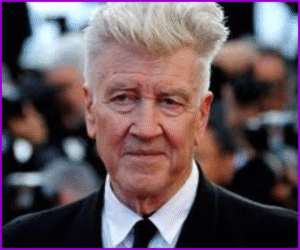David Lynch Biography: Age, Education, Career, Net Worth & Legacy
David Keith Lynch (January 20, 1946 – January 16, 2025) was an American filmmaker, artist, and musician best known for his surrealist storytelling, dreamlike visuals, and groundbreaking contributions to film and television. With works like Eraserhead, Blue Velvet, and Twin Peaks, Lynch became one of the most influential and original voices in cinema history.
Table of Contents
ToggleDavid Lynch Biography: 📋 Profile Summary
| Field | Details |
|---|---|
| Full Name | David Keith Lynch |
| Date of Birth | January 20, 1946 |
| Date of Death | January 16, 2025 |
| Age at Death | 78 |
| Nationality | American |
| Profession | Filmmaker, Artist, Musician |
| Net Worth | Estimated $70 million |
| Education | Pennsylvania Academy of Fine Arts, AFI Conservatory |
| Known For | Surrealist films, Twin Peaks, experimental storytelling |
Early Life

David Lynch was born in Missoula, Montana, and raised in a middle-class family. His father worked as a scientist for the U.S. Department of Agriculture, and his mother was a tutor. Lynch spent his early years moving around the United States, living in various states including Idaho, Washington, and North Carolina. From a young age, Lynch showed interest in drawing and visual storytelling. His mother encouraged his creativity by refusing to let him use coloring books, urging him instead to create his own images.
Education
Lynch initially studied painting at the Corcoran School of the Arts and the Museum of Fine Arts in Boston but found his true direction at the Pennsylvania Academy of the Fine Arts in Philadelphia. It was there that he began experimenting with animation and film. His first short, Six Men Getting Sick (Six Times), won a prize at the academy. He later earned a scholarship to the American Film Institute (AFI) Conservatory in Los Angeles, where he developed and completed his first feature film, Eraserhead.
Career Highlights
David Lynch’s debut feature, Eraserhead (1977), was a surreal black-and-white film that became a cult favorite. It took several years to make and established Lynch as an experimental filmmaker unafraid of diving into dream logic and disturbing imagery.
His next major film, The Elephant Man (1980), brought him to mainstream audiences and earned eight Academy Award nominations, including Best Director. It showed his ability to combine experimental vision with emotional storytelling.
In 1984, Lynch directed Dune, a science fiction adaptation that was a commercial disappointment but later developed a cult following. He rebounded with Blue Velvet (1986), a psychological mystery that earned critical acclaim and further solidified his reputation as a bold and visionary director.
In 1990, Lynch created Twin Peaks, a television series that redefined what was possible on TV. Mixing soap opera drama with supernatural horror, it quickly became a pop culture phenomenon. He later returned to the show in 2017 with Twin Peaks: The Return, which received widespread praise as one of the most daring revivals in television history.
Other notable films include Wild at Heart (1990), which won the Palme d’Or at Cannes; Lost Highway (1997); The Straight Story (1999), a rare family-friendly film; Mulholland Drive (2001), considered by many critics as his masterpiece; and Inland Empire (2006), his most abstract and experimental work.
Artistic Work and Music
In addition to filmmaking, Lynch was an accomplished painter, sculptor, and photographer. He exhibited his artwork in galleries around the world and released several experimental music albums, such as Crazy Clown Time and The Big Dream. He frequently collaborated with composer Angelo Badalamenti, whose music became central to the haunting atmosphere of Lynch’s films and shows.
Lynch was also a strong proponent of Transcendental Meditation. He founded the David Lynch Foundation in 2005 to promote meditation programs in schools, prisons, and underserved communities.
Net Worth
At the time of his death in January 2025, David Lynch’s estimated net worth was around $70 million. His wealth was accumulated through decades of work in film, television, art, music, and commercial projects. He also generated income through art exhibitions, speaking engagements, and his foundation work.
Awards and Honors
Throughout his career, Lynch received numerous accolades, including an Honorary Academy Award in 2019 for his contribution to the art of filmmaking. He also won the Palme d’Or at the Cannes Film Festival, the Golden Lion for Lifetime Achievement at Venice, a César Award in France, and multiple Emmy nominations. Critics and filmmakers often cite him as one of the greatest American auteurs of all time.
Personal Life
Lynch was married multiple times and had four children, including Riley Lynch and filmmaker Jennifer Lynch. He lived a relatively private life and split his time between Los Angeles and Montana. Known for his daily routines, black coffee, and love of 1950s Americana, Lynch projected a calm, polite demeanor in stark contrast to the unsettling nature of many of his films.
Legacy
David Lynch’s work transcends genre. He brought surrealism into the mainstream without compromising artistic integrity. His ability to combine unsettling imagery with deep emotional themes left a permanent mark on cinema, television, and visual art. His influence can be seen in the work of countless directors, from Christopher Nolan to Denis Villeneuve.
His foundation also leaves a social legacy, promoting mental health, education, and creativity through meditation and self-expression.
FAQs About David Lynch
How old was David Lynch when he died?
He passed away at 78 years old on January 16, 2025.
What is David Lynch’s net worth?
His estimated net worth was around $70 million.
What are David Lynch’s most famous works?
His most acclaimed works include Eraserhead, The Elephant Man, Blue Velvet, Mulholland Drive, and Twin Peaks.
Did David Lynch win an Oscar?
He received an Honorary Academy Award in 2019 and was nominated three times but never won a competitive Oscar.
What made David Lynch unique?
His use of surrealism, non-linear storytelling, and dream logic set him apart from mainstream directors and helped redefine modern filmmaking.




